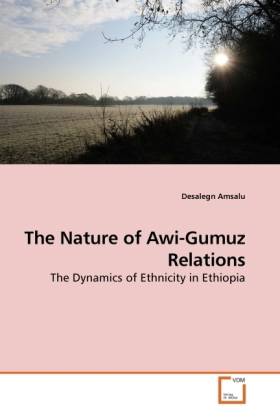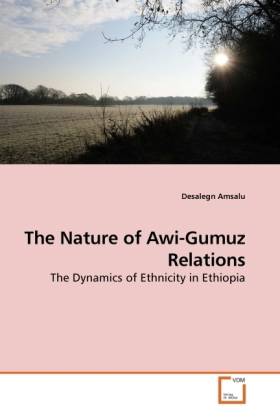
Bedankt voor het vertrouwen het afgelopen jaar! Om jou te bedanken bieden we GRATIS verzending (in België) aan op alles gedurende de hele maand januari.
- Afhalen na 1 uur in een winkel met voorraad
- In januari gratis thuislevering in België
- Ruim aanbod met 7 miljoen producten
Bedankt voor het vertrouwen het afgelopen jaar! Om jou te bedanken bieden we GRATIS verzending (in België) aan op alles gedurende de hele maand januari.
- Afhalen na 1 uur in een winkel met voorraad
- In januari gratis thuislevering in België
- Ruim aanbod met 7 miljoen producten
Zoeken
The Nature of Awi-Gumuz Relations
The Dynamics of Ethnicity in Ethiopia
Desalegn Amsalu
Paperback | Engels
€ 90,45
+ 180 punten
Omschrijving
Interethnic relation is a dynamic phenomenon. Ethiopia, as a hub of over 85 ethnic groups, has ever hosted continuous ethnic process in relation to itself and within ethnic groups themselves.This research captures the case of the Awi and the Gumuz in northwest Ethiopia.It deals with the process of contact, integration and interaction between the two ethnic groups, their corresponding distinctive ethnic attributes,and the nature of peaceful and 'conflictual' relations. It also discusses significances of amicable relations, perils of 'conflictual' ones, and respective causes to each one of them.Particularly it shows how external and internal factors can harden or soften interethnic relations. It finally suggests ways of maintaining and enhancing amicable relations, and improving conflictual ones in the context of the two ethnic groups.
Specificaties
Betrokkenen
- Auteur(s):
- Uitgeverij:
Inhoud
- Aantal bladzijden:
- 172
- Taal:
- Engels
Eigenschappen
- Productcode (EAN):
- 9783639244090
- Verschijningsdatum:
- 7/04/2010
- Uitvoering:
- Paperback
- Afmetingen:
- 152 mm x 229 mm
- Gewicht:
- 259 g

Alleen bij Standaard Boekhandel
+ 180 punten op je klantenkaart van Standaard Boekhandel
Beoordelingen
We publiceren alleen reviews die voldoen aan de voorwaarden voor reviews. Bekijk onze voorwaarden voor reviews.









